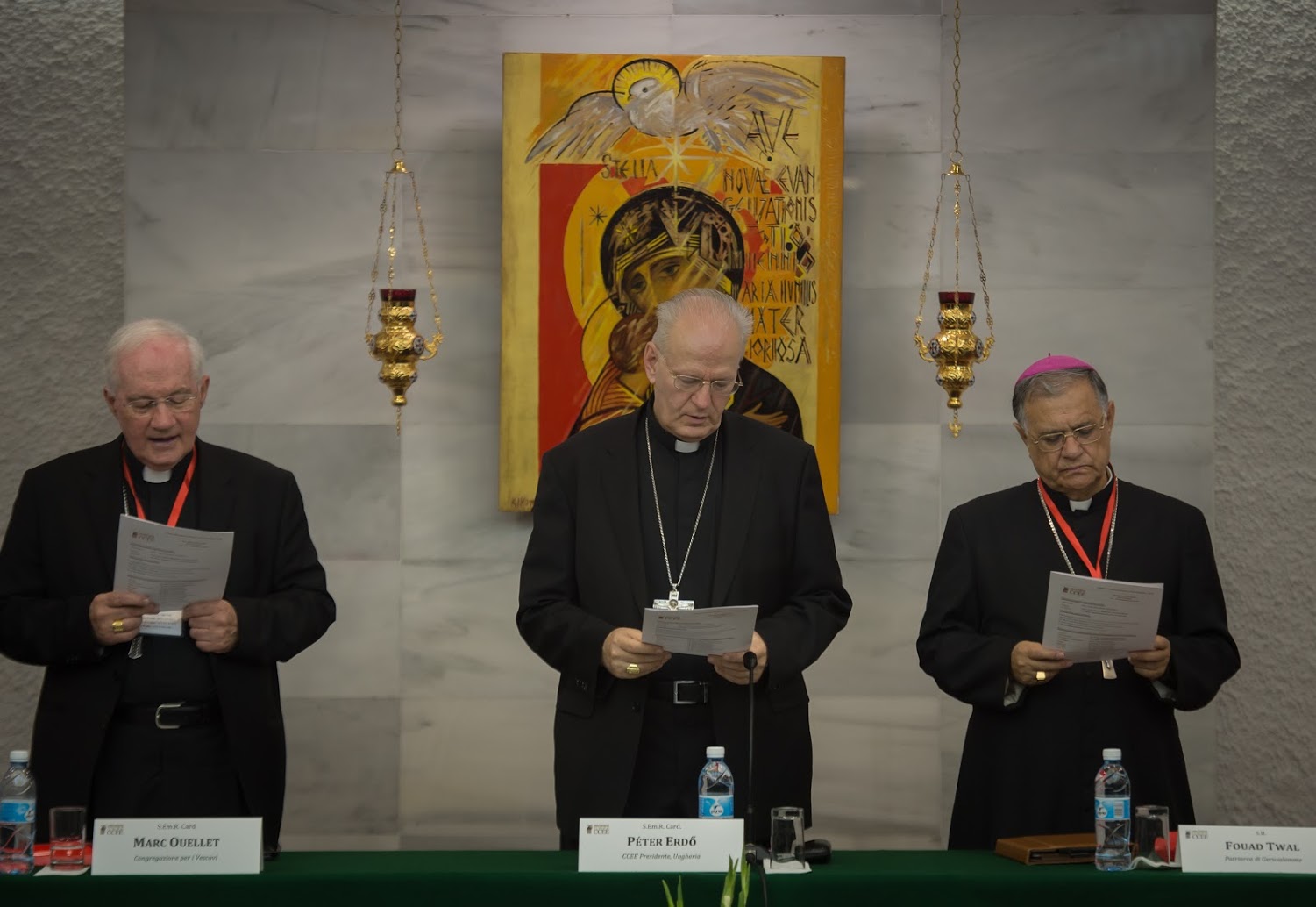Voices, faces, topics and the “atmosphere” of the 2015 CCEE plenary. In-camera sessions, meetings with families, Masses at the holy sites

Faces and key-words; the “bearing” of the items on the agenda and the pleasure to meet again, at least once a year, to share the joys and the worries of national Churches. The annual CCEE meeting is also smiles, sharing, prayer, meetings (with families, schoolchildren, political leaders, intellectuals, journalists, ordinary people…) and mutual understanding. The 2015 Conference of European bishops – September 11-16 – travelled across the Holy Land: Korazim, Capernaum, the village of Mi’ilya, Nazareth, Magdala, Bethlehem and Jerusalem. Migration, family, peace, world poverty, new cultural horizons, ethical challenges, the frontiers of evangelization, environment: these were but some of the topics on the agenda of the six-day plenary, during which the prelates gathered in prayer in the village of Peter, in the home of Mary and of the Annunciation, on the site of the nativity of Jesus, and finally at the Holy Sepulchre. At the fountainhead of faith. In their final Message the bishops summarised the major outcomes of the meeting (see the editorial in this special issue of SIR Europe on the CCEE assembly). Many prominent voices reverberated in the days of the “pilgrimage”, such as those of CCEE president Cardinal Péter Erdő (Hungary), of the Vice-Presidents cardinal Angelo Bagnasco (Italy) and Mons. Angelo Massafra (Albania), as well that of card. Marc Ouellet, prefect of the Congregation for the Bishops, the Latin Patriarch of Jerusalem Fouad Twal, Msgr. Giuseppe Lazzarotto, Apostolic Nuncio to Israel and Delegate for Palestine, Father Pierbattista Pizzaballa, Custos of the Holy Land. The same cardinal Péter Erdő clarified the reasons for this meeting “abroad” in his opening address. “We are here – he said – to rediscover the fountainhead of our identity as a people of God and of our mission as successors of the apostles, sent to witness the encounter with the face of the mercy of the Father who is Jesus himself”. He went on: “We are meeting on a pilgrimage to reaffirm our ‘Yes’ to the Lord Jesus as European bishops”. The historical background. Cardinal Marc Ouellet highlighted the opportunity for the bishops present (representing some forty nations) to “share the suffering and the joys of the Church present in our European countries”. However, this commitment must take place “within the specific realm of this Church” of the Holy Land, “that is so tormented and yet heroic”. Thus “this healthy exercise of communion enhances our universal solicitude and will allow us to address today’s challenges with the only force that belongs to us: that of unity”. Ouellet also outlined the historical context in which the CCEE meeting took place underlying the current “difficult and delicate times”. “Inflows of migrants from the Southern and Eastern Mediterranean regions (in particular from Africa and the Middle East) to the countries of the European Union increase day after day. Hunger, wars, poverty, lack of rights, religious persecution are the causes which lead many people to migrate in inhumane conditions”. The Cardinal equally underlined the economic and employment crisis in Europe and – especially in the Old Continent – the advancing process of secularization, which places the mission of evangelization and the pastoral life within fickle, contrasting scenarios. A broad range of themes. The “in-camera” sessions of the plenary focused on the question of the reception of migrants and refugees and on the family, “not only from the political-ideological standpoint, but also from the financial angle, given the ongoing economic crisis that strives to show signs of recovery in European household budgets”. The prelates – as confirmed by the CCEE press office – addressed “the knot of bioethics” (assisted suicide, pre-implant diagnosis), “denouncing a legislative drift and inflamed media debates that too often reduce the Gospel of the Church to a mere moral position”. From a cultural perspective, the bishops underlined the spread of “the single-thought” ideology that is invading other areas of public life, signalling a “strict interpretation of the gender theory”. The final meetings with the presidents of Israel (Rivlin) and of the PA (Abbas) made it possible to reaffirm the value of peace, mutual listening and respect and religious freedom: all fundamental elements – for the Churches as for political institutions – to try to ensure the welfare of the peoples, at any latitude, whether in Europe, the Middle East or any other region of the planet.